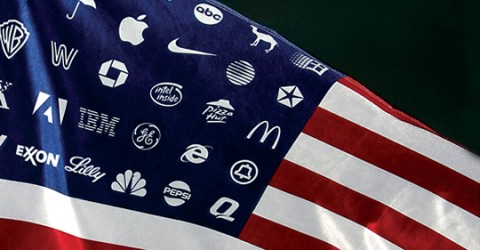So, Wall Street has been occupied for several weeks. We all know that things need to change. We all know that the 1% has been living off the backs of the 99% for far too long. There are far too many issues behind the current protests to enumerate. However, there is one cause for the protester’s frustrations…corporate greed. I don’t think anyone would argue that corporations don’t have the right to earn a profit, but what I would argue is that they should not have the right to make a profit at the expense of the communities in which they operate, their employees, the environment, or the cultures that promote and allow their existence.
In 2002, Robert Hinkley, a corporate lawyer turned activist, wrote an essay entitled “How Corporate Law Inhibits Social Responsibility”. In it, Hinkley details the real problem behind the corporate stranglehold on this country and it was enough to make him turn his back on his career and forge a new path forward. What Hinkley began to understand in his tenure as a corporate lawyer was that corporations are only doing what they are LEGALLY mandated to do. While corporate governance laws vary from state to state, their fundamental legal purpose is the same…protect the interests of the corporation and its shareholder. In plain terms, make money for the company and people who own it. That’s it. That’s all. As this article shows, that’s at least how the CEO of Bank of America sees it as well.
We are seeing now the effects of this kind of corporate structure. While making a profit is not wrong, it should not be done to the detriment of everything else. In a society like ours, the gap between the rich and the poor or the haves and the have-nots should not be growing. It should definitely not be so vast. There should not be people struggling to eat or get help when they are sick, and they should definitely NOT be told, Herman Cain, that it is their fault they are in that position.
So, while the protestors may be resentful of the media asking them about their “demands” as if they have hi-jacked a Boeing, I think it is in their best interests to begin to formulate what will be said when the time comes for the “leadership” of this movement to have a true dialogue with those in power. If they fail to do so, history will mark the movement as a failure and the protestors will come out of this just as they are being portrayed. However, if they can find that single idea or small collection of ideas capable of galvanizing the many voices with many complaints into a few concise policies that can be used to actually build a dialogue, then they may actually see progress. I think one of those ideas should be changing the legal structure that mandates the purpose of a corporation.
A change in the way they are forced to play the game may just level the field. We live in a land that brought the electric light bulb, the phonograph, the television, the computer, the internet, and of course, the iPhone. We are a creative and proud nation, but when our corporate citizens are not forced to live in the same socially responsible manner with which the rest of society is required, then we start to see the disconnects and reactions that Engels and Marx warned us about. As Hinkley stated in 2002, we can make that change in 28 words:
…the directors and officers of a corporation shall exercise their powers and discharge their duties with a view to the interests of the corporation and of the shareholders…
… but not at the expense of the environment, human rights, the public safety, the communities in which the corporation operates or the dignity of its employees.
With the rich history of innovation that this nation holds, I am sure that American corporations can find the talent available among the droves of protesters to help them find ways to generate profits while living within this new framework that is being demanded by those just looking for affordable healthcare and a sustainable living wage.





 Ok, so the Internet can and should be
Ok, so the Internet can and should be 


You must be logged in to post a comment.